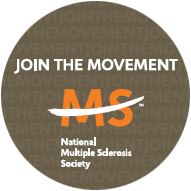By Dennis Thompson, HealthDay Reporter
SUNDAY, July 6 (HealthDay News) -- There's no one single way to suffer from multiple sclerosis.
Every patient exhibits different symptoms as the disease gnaws away at the nerve endings in the brain, the spinal cord and even the eyes.
Doctors aren't even sure what causes MS, or what makes one person more likely to get it than another.
"I have a patient who is 6 years old," said Dr. Daniel Kantor, director of the Comprehensive Multiple Sclerosis Center at the University of Florida. "I have a patient who is 71 years old. I have patients from all walks of life, all ages."
But, the recent discovery of a second gene linked to multiple sclerosis -- hailed as a major breakthrough -- is giving researchers hope that they are zeroing in on useful treatments -- and, ultimately, a cure.
In what is considered the most significant genetic breakthrough in MS research in three decades, scientists last year announced they had found a gene that increases the risk of developing the disease by 30 percent.
"This discovery is very significant, because it is hopefully the first of many, and after more than 30 years of finding nothing," said Dr. Jennie Q. Lou, professor of public health and internal medicine at Nova Southeastern University in Fort Lauderdale, Fla.
"We will expect to find many more of these genes over the next few years. Either these genes, or genes related to them, may be an excellent target that researchers can use to develop treatments and cures for MS," she added.
The symptoms of multiple sclerosis are many and varied, as the disease attacks different parts of the nervous system.
One MS patient may have trouble walking, while another is wheelchair-bound. One person may experience terrible fatigue, while another might struggle with blurred or double vision. Still another might have slurred speech, tremors, stiffness and bladder problems, according to the National Multiple Sclerosis Society.
"A lot of the symptoms are invisible symptoms to an outsider," Kantor said. "Pain, extreme fatigue, memory problems -- these are problems you just can't see."
Multiple sclerosis is considered an autoimmune disease, because it attacks the central nervous system.
The nerve fibers of the central nervous system are surrounded and protected by a fatty tissue called myelin, which helps the fibers conduct electrical impulses. With MS, myelin is lost in multiple areas, leaving scar tissue called sclerosis. Sometimes, the fiber itself is harmed.
When myelin or the nerve fiber is destroyed or damaged, the ability of the nerves to conduct electrical impulses to and from the brain is disrupted, producing the various symptoms of MS.
Most people with MS are diagnosed between the ages of 20 and 50, and twice as many women as men have the disease. About 400,000 Americans are known to have MS, and every week about 200 new cases are diagnosed. Worldwide, the MS toll may run as high as 2.5 million people, according to the National Multiple Sclerosis Society.
The exact cause of MS is unknown, but doctors suspect it comes from some combination of genetic and environmental factors, Kantor said.
"There's a genetic predisposition and then something happens, they are exposed to something, and it makes the body's defense system attack itself versus attacking a foreign invader," he said.
That's why the discovery of the second gene is so important. Researchers now know they have to cast a wider net.
"We've been looking at one gene the whole time, and we thought that was going to be the answer to understanding MS," Kantor said. "This is just telling us there's another part of the immune system that is important as well. It's made things more complicated, but if it's true, it's true."
The gene discovery is one of a number of advances that are occurring at a rapid pace.
Lou noted that new research has successfully used stem cells to help replace myelin in the brains of mice. "This discovery has shed light on the great potential of using stem cells in MS treatment," she said.
And last year, researchers proved that an experimental DNA vaccine to fight multiple sclerosis is safe and stands a good chance of being effective. The vaccine works by thwarting the immune system's attack on the myelin sheaths protecting nerve fibers.
Other advances noted by Lou include:
- Better and earlier diagnosis owing to advances in imaging technology.
- Improved drugs to reduce the frequency and severity of symptoms, and the accumulation of lesions in the brain and spinal cord.
- More aggressive rehabilitation programs developed specifically for MS patients.
"Every time we get our Journal of Neurology, more than half of it is about MS and how we can treat MS," Kantor said. "The MS of today is not the MS of even 15 years ago. We are learning more about it at a rapid rate."
More information
To learn more, visit the National Multiple Sclerosis Society.

SOURCES: Daniel Kantor, M.D., assistant professor, neurology, and director, Comprehensive Multiple Sclerosis Center, University of Florida, Jacksonville; Jennie Q. Lou, M.D., MSc, professor, public health and internal medicine, Nova Southeastern University, Fort Lauderdale, Fla.; National Multiple Sclerosis Society
Copyright © 2008 ScoutNews, LLC. All rights reserved.
